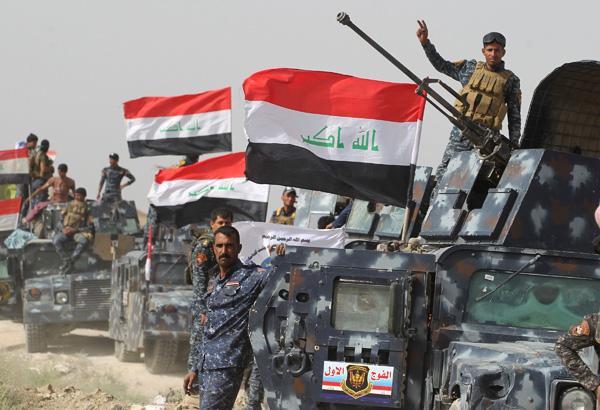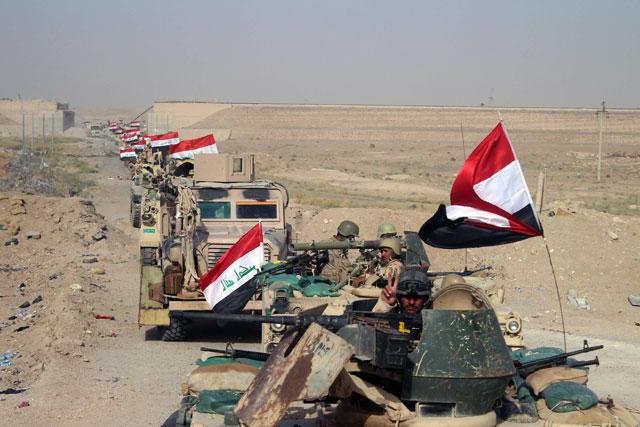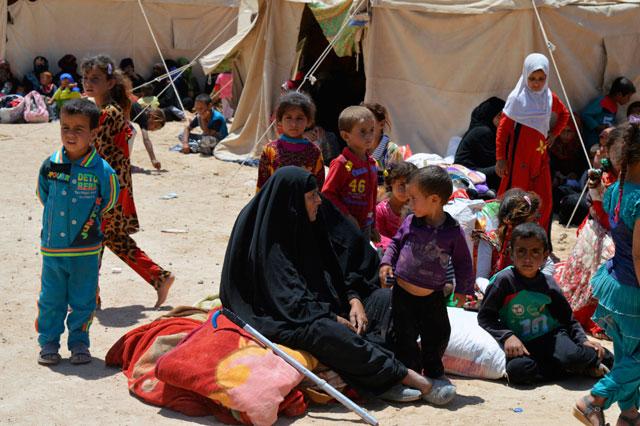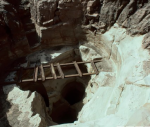You are here
Iraqi forces clash with Daesh near Fallujah, bombard city centre
By Reuters - May 23,2016 - Last updated at May 23,2016
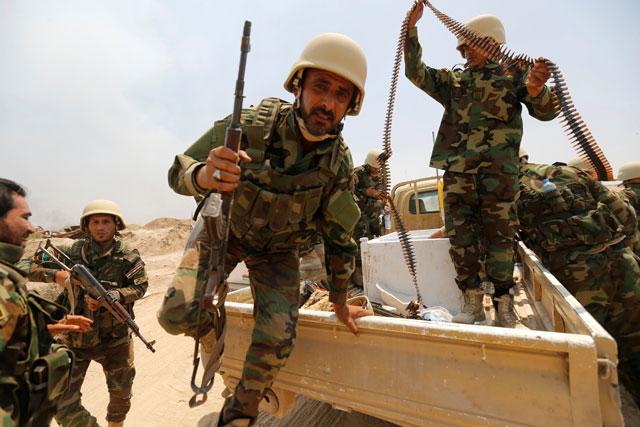
Fighters from Iraqi Shiite group Kataib Sayyid Al Shuhada gather near Fallujah, Iraq, on Monday (Reuters photo)
BAGHDAD — Iraqi government forces fought Daesh militants near Fallujah on Monday and bombarded central districts at the outset of an offensive to retake the long-time extremist stronghold on the western approaches to the capital Baghdad.
Some of the first direct clashes occurred in the area of Al Hayakil on Fallujah's southern outskirts, a resident said. Iraqi troops also approached the northern suburb of Garma, the top municipal official there said, to clear out militants before turning their attention towards the city centre.
Air strikes and mortar salvoes overnight targeted neighbourhoods inside the city where the Daesh terror group is believed to maintain its headquarters. The bombardment had eased by daybreak.
Seven civilians and two militants were killed in the shelling, while 21 civilians and two militants were wounded, a source at Fallujah's medical centre said.
The final toll is likely to be higher as this accounts only for casualties brought to hospital. There was no immediate report of casualties among Iraqi forces.
Iraqi military spokesman Brigadier General Yahya Rasool, speaking on state television, described the government's advance as "careful" and reliant on engineers to dismantle roadside bombs planted by the militants.
Fallujah, 50km from Baghdad, was the first city to fall to Daesh, in January 2014. Six months later, the group declared a “caliphate” spanning large parts of Iraq and neighbouring Syria.
Iraqi forces have surrounded Fallujah since last year but focused most combat operations on Daesh-held territories further west and north. The authorities have pledged to retake Mosul, the north's biggest city, this year in keeping with a US plan to oust Daesh from their de facto capitals in Iraq and Syria.
But the Fallujah operation, which is not considered a military prerequisite for advancing on Mosul, could push back that timeline. Two offensives by US forces against Al Qaeda insurgents in Fallujah in 2004 each lasted about a month and wrecked significant portions of the city.
There are between 500 and 700 Daesh militants in Fallujah, according to a recent US military estimate.
Iraqi army helicopters were rocketing Daesh positions in nearby Garma and targeting movement in and out of the area in order to weaken resistance enough for ground troops to enter, Mayor Ahmed Mukhlif told Reuters.
The defence minister and army chief of staff visited part of that northern axis on Monday, a ministry statement said.
Populated city
Prime Minister Haider Al Abadi, also grappling with political and economic crises in the OPEC member state, visited a command centre set up nearby to oversee operations, exchanging his suit for the black uniform of an elite commando unit.
Announcing the offensive in a late-night speech, Abadi said it would be conducted by the army, police, counter-terrorism forces, local tribal allies and a coalition of mostly Shiite Muslim militias.
Iraqi officials say the militias, including ones backed by Shiite power Iran, may be restricted to operating outside the city limits, as they largely did in the successful battle to retake the Anbar provincial capital of Ramadi six months ago, to avoid aggravating sectarian tensions with Sunni residents.
State television aired footage of armoured vehicles sitting among palm groves on Fallujah’s outskirts, a green tracer glow emanating from shell and machinegun fire. A family stood in the daylight outside a simple one-storey home, cheering and waving a white flag as a military convoy passed by.
Iraqi and US officials estimate there are as many as 100,000 civilians still in Fallujah, a city on the Euphrates river whose population was three times that size before the war. A six-month siege has created acute shortages of food and medicine.
The Baghdad government has called on civilians to flee and said it would open safe corridors to southern areas, but roadside bombs have prevented most of them from leaving.
The UN refugee agency UNHCR said 80 families that managed to flee in recent days via a main road or through agricultural fields were undergoing screening by the security forces.
It said at least three people had been killed trying to escape while 10,000 families were stuck inside “in a very precarious situation”.
Residents living in central Fallujah said they had moved at dawn to relative safety in outlying northern areas, but Daesh patrols have since begun limiting movement even between neighbourhoods.
Militants were also using mosque loudspeakers to urge civilians to donate blood, residents said.
Related Articles
BAGHDAD — The Daesh terror group is preventing people from fleeing Fallujah amid a military operation to recapture the city west of Baghdad,
FALLUJAH, Iraq — Iraq's army sought on Monday to eliminate Daesh militants holed up in farmland west of Fallujah to keep them from launching
BAGHDAD — Civilians who managed to flee besieged Fallujah have reported cases of starvation in the Iraqi city that government forces are try


